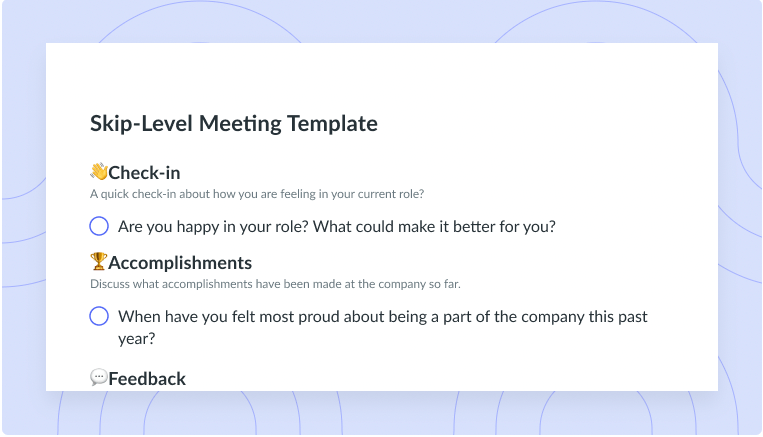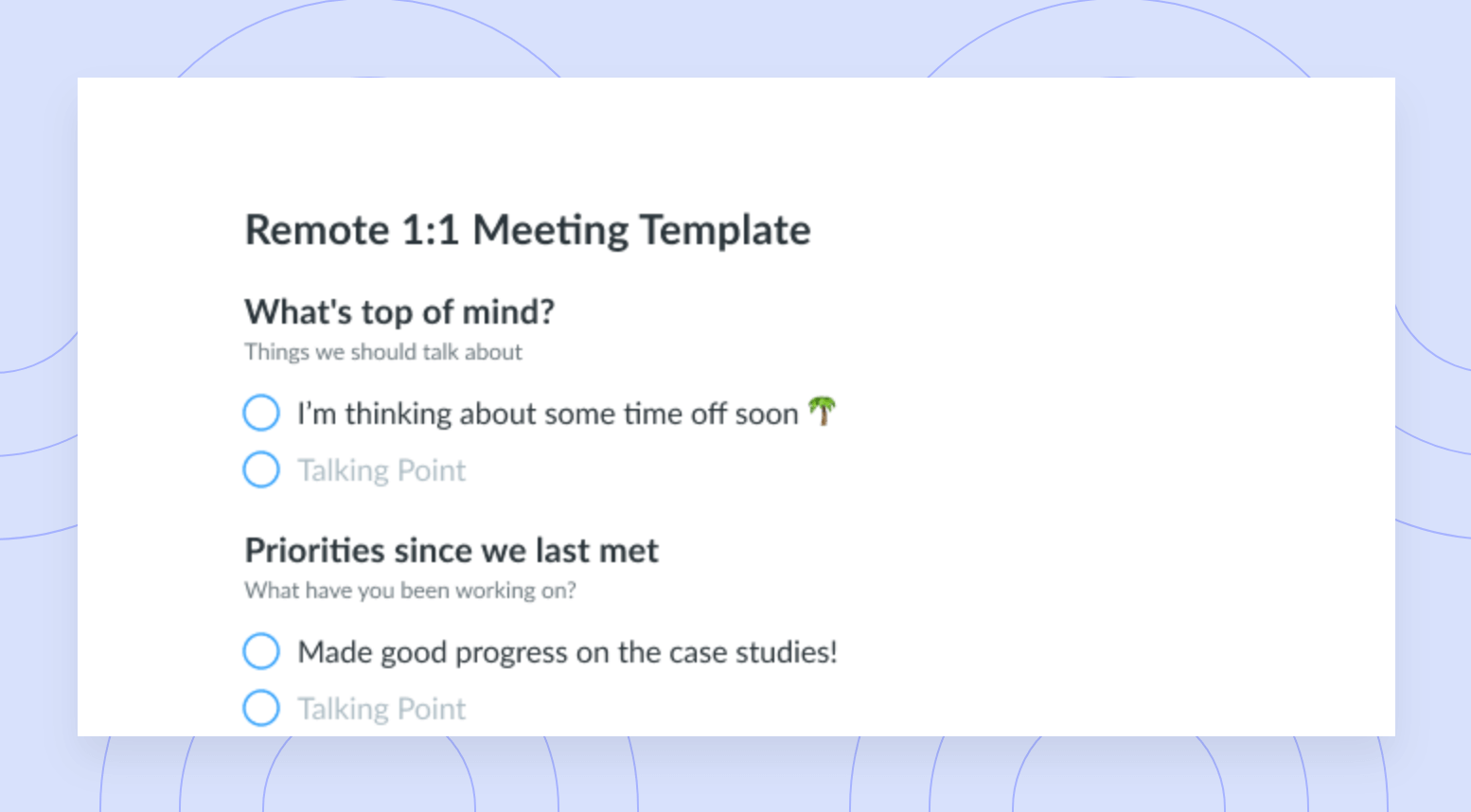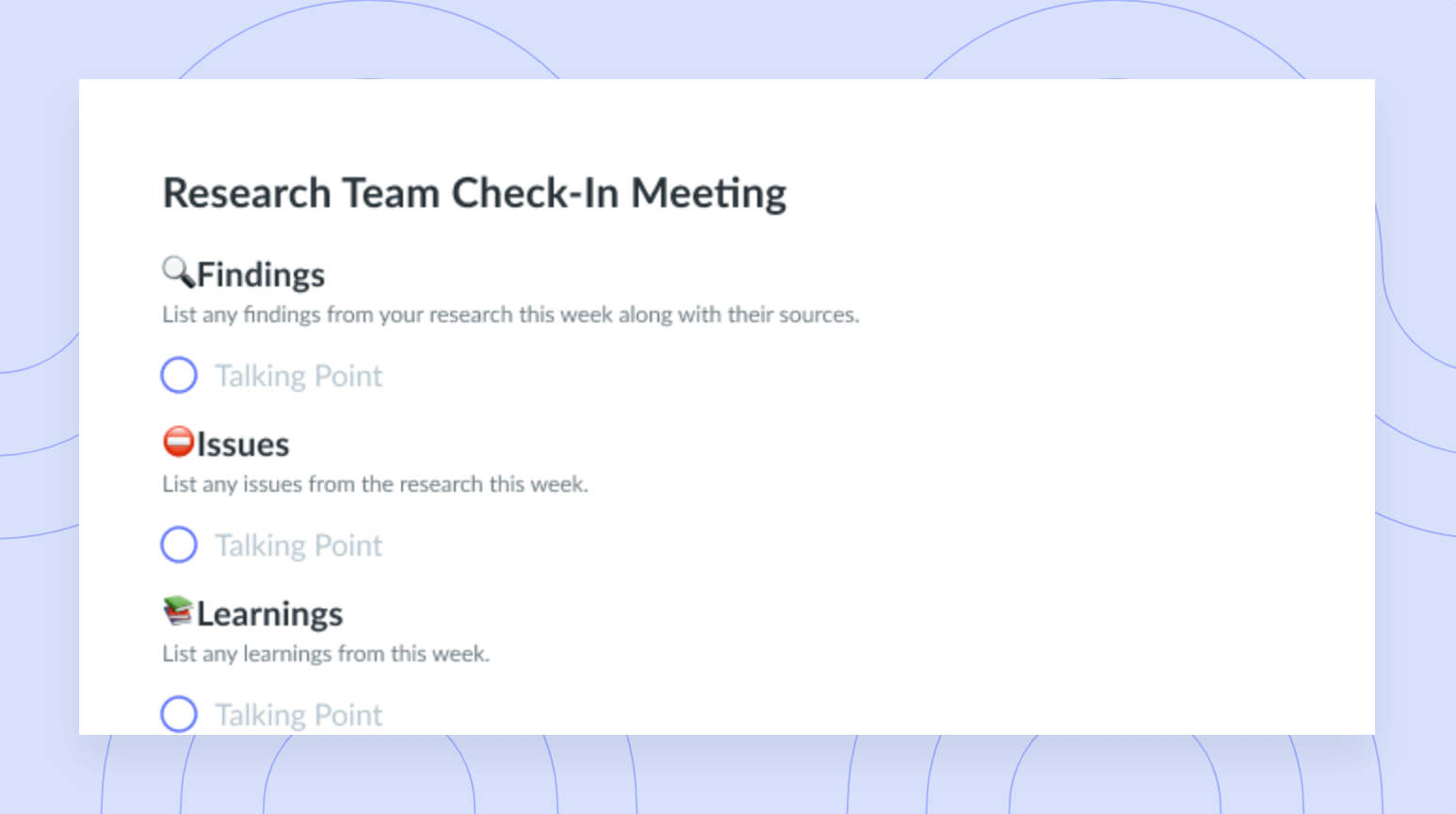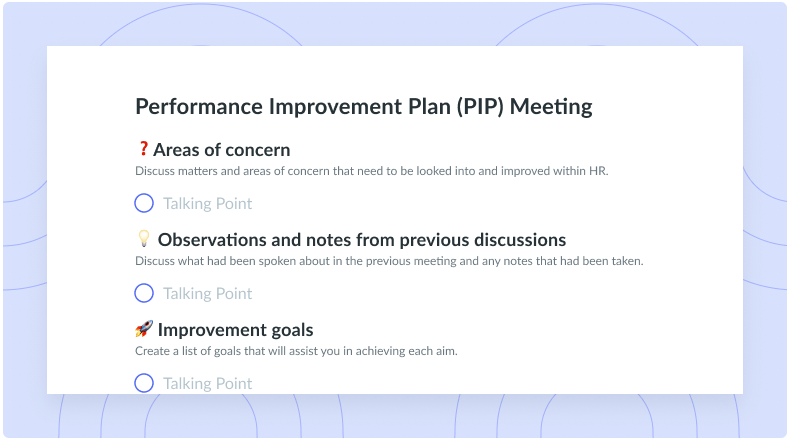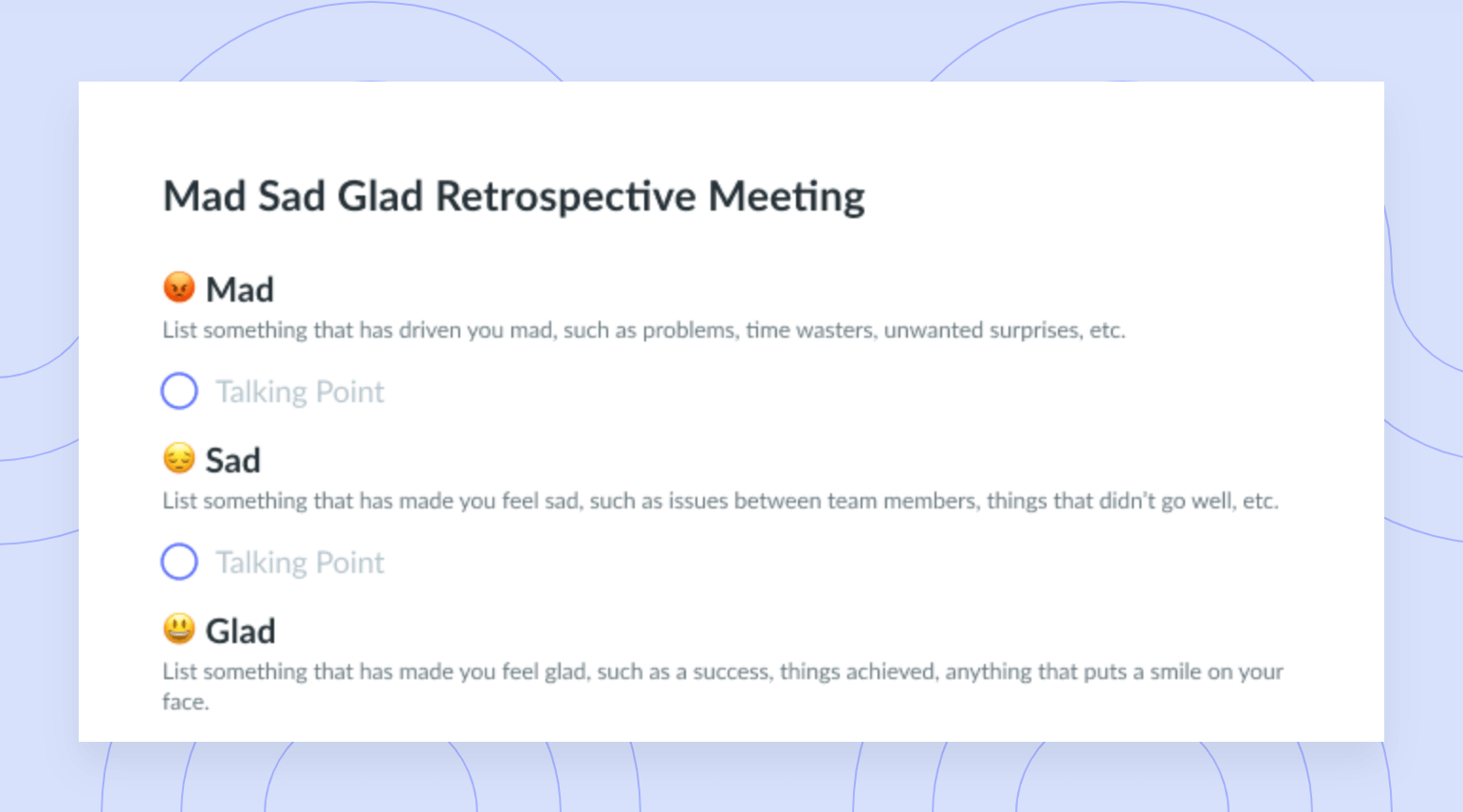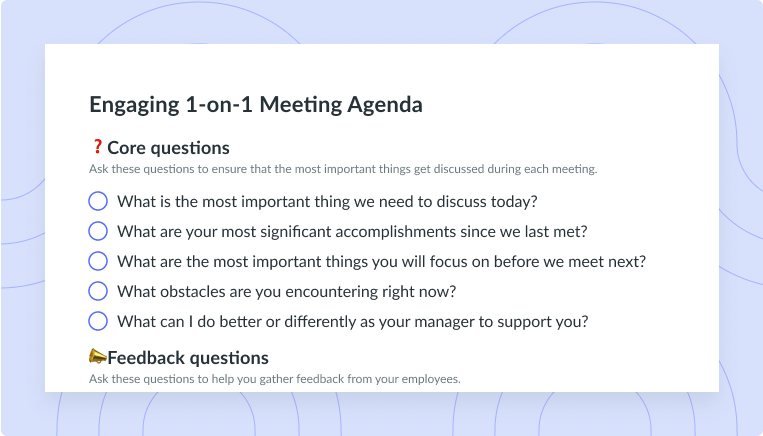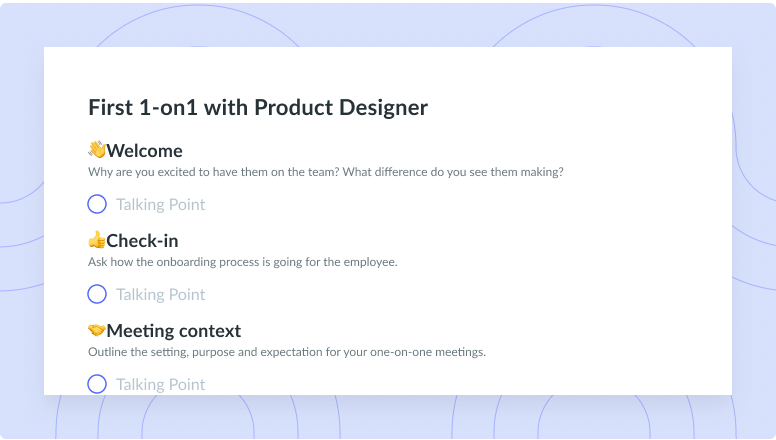13 Things Your Boss Should Never Say to You
Learn 13 things that your boss should never say to become a more productive and efficient employee.
As a boss, it’s important to recognize how you can reframe certain phrases to encourage more impactful conversations. And as an employee, it’s important to recognize the things your boss should never say to you so you can make sure to avoid these encounters at all costs. As long as both parties remain respectful and keep an open line of communication, every conversation will run smoothly and according to plan.
13 things your boss should never say in a meeting
- We’ll talk about this later
- There is no time for that right now
- That idea won’t work
- No
- This is off-topic, but
- Figure it out on your own
- Trust that leaders know best
- Why wasn’t this done?
- That’s not my job, it’s yours
- It’s always been done that way
- You want more time off?
- Try to be less [personality trait]
- I’ll think about it
1“We’ll talk about this later”
As a manager or leader, it’s important to be receptive. Instead of simply saying “we’ll talk about this later,” it’s important that you take the time to acknowledge your employee’s train of thought. It may have taken them a lot of courage to come forward, so it’s important to be kind and receptive.
If it’s not an appropriate time to have the conversation, thank them for their opinion and provide them with an alternative option. Maybe that means replying with “would you like to discuss this further in a meeting” or “thank you, let’s chat about this during our scheduled one-on-one.” What’s most important is that you don’t brush off the conversation as if it isn’t meaningful or valuable.

Meetings worth showing up to
A well-run meeting can foster communication and collaboration by including an agenda the whole team can contribute to. Try using a tool like Fellow!
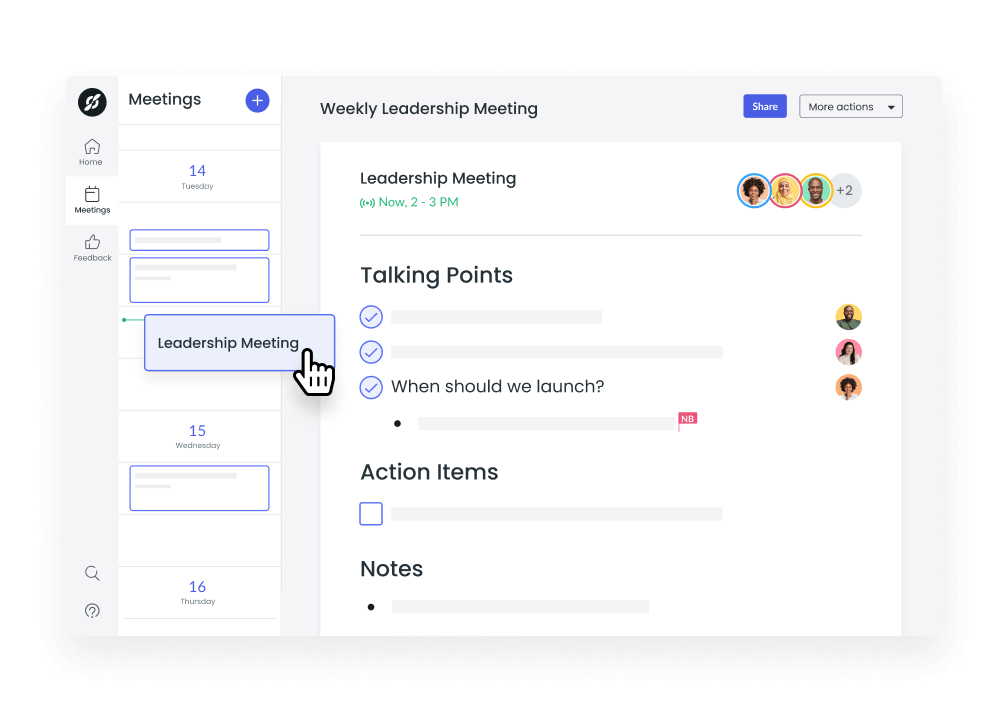
2“There is no time for that right now”
As stated above, it’s important to be receptive and to do so, you need to create an inclusive environment where your teammates feel comfortable coming to you, no matter what they have to share. Instead of saying, “there’s no time for that right now,” try redirecting the conversation and work on providing an alternative. Instead, say something along the lines of “thank you for bringing that up, can we discuss it further during this week’s stand-up meeting?” or “thank you for sharing, can we discuss it at a more appropriate time?” It’s imperative that you don’t dismiss your teammates’ contributions and instead make them feel valued and included.
3“That idea won’t work”
There’s nothing worse than a manager or leader who thinks they have all the answers. It’s your job to cultivate inclusivity and create an environment where fresh ideas flow like water. If you truly believe that the idea your teammate brought forward won’t work, take the time to explain why. But remember, it’s important to keep an open mind and embrace ideas that aren’t your own.
4“No”
Being told no with zero justification is extremely discouraging. It’s even worse when you’ve built up the courage to approach a manager or leader, and they don’t take the time to hear you out or help you refine your idea. As a manager or leader, it’s your job to lift people up and help them become the best versions of themselves that they can be. If you immediately shut them down, you won’t only be discouraging them from approaching you in the future, but you’ll also be hindering their growth and success. Instead, be open-minded and receptive. Take the time to hear what they have to say and remain open to learning something new.
5“This is off-topic, but…”
There’s no need to shut someone down right out of the gate. Instead of saying, “that’s off-topic, but…”, you can redirect the conversation in a way that’s mutually beneficial. Simply thank them for their contributions and encourage them to share their train of thought at a more appropriate time.
6“Figure it out on your own”
Empowering those on your team to do their best work is one thing, but abandoning ship and telling them to figure something out on their own is a whole other. Instead, focus on the areas with which you can help or provide assistance. You may want to consider asking how you can help or learning what tools or resources you can provide them to help them get the job done independently.
7“Trust that leaders know best”
Leaders may know best in some scenarios, but that isn’t always the case. Oftentimes individual contributors are closer to the problem, meaning they have a better read on what’s really going on. While leaders should offer guidance and leadership, they may not always have the answers and should learn to lean on their direct reports for their expertise.
8“Why wasn’t this done?”
If something isn’t done, chances are your teammates already know, and there’s a good reason for it. Instead of asking them why a project hasn’t been completed or why a certain deadline hasn’t been met, consider asking yourself what you could have done differently to be on top of the project from the get-go. Conducting frequent check-ins and monitoring goals and benchmarks will ensure you aren’t asking “why” after the fact.
9“That’s not my job, it’s yours”
If you asked someone for help or reached out for guidance and received the phrase above as a response, how would you feel? Regardless of how you may perceive the request, it was obviously important to the person who posed the question, meaning it’s important to take it seriously and try your best to be helpful. Even if you feel as though something isn’t your job, it’s important to respond respectfully. Instead of responding with “that’s not my job, it’s yours,” consider responding with something more respectful like “let’s see how we can tackle this project together” or “what can I do to help you get started”?
10“It’s always been done that way”
The most effective leaders value innovation and creativity. When they’re not basking in the glory of an exciting new concept, they’re encouraging their teammates or direct reports to push boundaries and think outside of the box. The phrase above hints at the exact opposite. Just because something has always been done one way doesn’t mean it can’t be done better or more efficiently. Instead of saying, “it’s always been done this way,” consider words of encouragement and say something along the lines of “I would love to explore new, more efficient ways of doing things, maybe we can book a meeting to discuss your process.”
11“You want more time off?”
There’s nothing worse than a manager who doesn’t respect your time. Oftentimes employees feel a great deal of shame about asking for time off. It can be difficult for employees to approach their superiors to ask for time off, so as a manager, it’s important to be respectful when they do. If they’re asking for time off at an inopportune time, simply be upfront and honest and try coming to an agreement that works for both of you.
12“Try to be less [personality trait]”
Condemning someone for their personality is a major no, especially as a manager. While it is your place to help your teammates learn, flourish, and grow, it isn’t your place to condemn them for their unique personalities. Instead of saying “try to be less [personality trait],” it would be more worthwhile to instead highlight the positive characteristics and personality traits of your teammates that you admire. This can be done by rewarding positive behaviors instead of shaming ones you don’t admire or agree with.
13“I’ll think about it”
When you say these words, your teammates may feel as though you have no intentions of taking what they’ve said into consideration. If you won’t be considering their suggestion, it’s best to be honest and tell them upfront so they don’t have a false sense of hope or unrealistic expectations. Take the time to share your expertise and educate them on why their suggestion may not be the best course of action. Saying something like, “that’s a great idea, but unfortunately, because of X, we aren’t able to focus on Y right now. If you disagree or think of a solution to this problem, I would be happy to discuss it further during our next meeting.”
Learn the things your boss should never say
Identifying things your boss should never say will help you avoid those types of conversations at all costs. As a leader, it’s your job to create an inclusive culture that fosters positive outcomes. To foster this type of environment, it’s best to remain cordial and respectful during all interactions. You can even leverage Fellow to create a collaborative meeting agenda to keep you on track when you meet with your manager to have these healthy conversations or to follow up with them regarding some concerning things they’ve said would be helpful.










